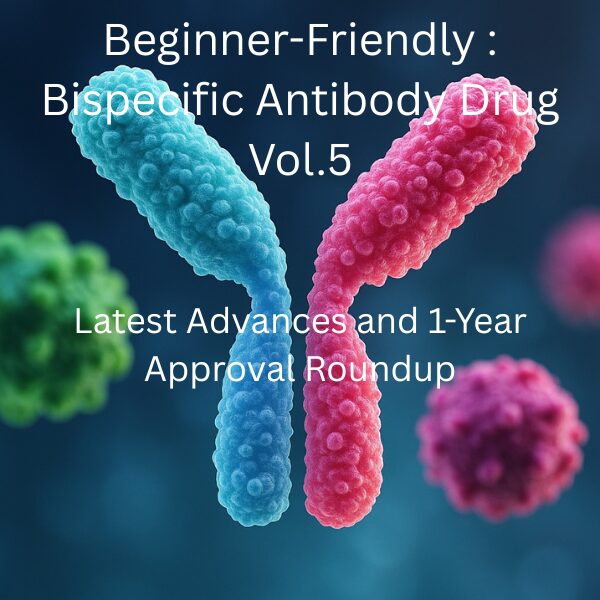In this final volume, we summarize the latest developments in bispecific antibody drug R&D by leading biotech and pharma companies, as well as major approvals over the past year in the US and EU. We also highlight key trends and notable partnerships shaping the field.
1. Key New Bispecific Antibody Approvals in the Last Year
- Zanidatamab (Ziihera): HER2-positive biliary tract cancer; approved in the US in Nov 2024 and in the EU in June 2025 :contentReference[oaicite:11]{index=11}
- Odronextamab (Ordspono): CD20×CD3 BiTE; approved in the EU in Aug 2024 :contentReference[oaicite:12]{index=12}
- Linvoseltamab (Lynozyfic): CD3×BCMA; authorized in the EU in Apr 2025 and approved in the US in July 2025 :contentReference[oaicite:13]{index=13}
2. Global Market and Rising Approvals
By 2024, approximately 19 bispecific antibodies had been approved worldwide, generating over $12 billion in sales :contentReference[oaicite:14]{index=14}. In the US, 13 BsAbs had gained approval through 2024, with further approvals expected in 2025 :contentReference[oaicite:15]{index=15}.
3. Pharma Trends & Strategic Partnerships
- BioNTech & BMS’s BNT327: a bispecific antibody aiming to outperform Keytruda, in a massive $11 billion collaboration :contentReference[oaicite:16]{index=16}
- Pfizer’s acquisition of rights to SSGJ-707 (PD-1/VEGF bispecific) from 3SBio for large upfront & milestone payments :contentReference[oaicite:17]{index=17}
- Akeso’s home-grown BsAbs (cadonilimab, ivonescimab) secured approval and national reimbursement listing in China, and are undergoing global Phase III trials :contentReference[oaicite:18]{index=18}
4. Market Outlook & Trends
The global bispecific antibody market is estimated at $5.6 billion in 2025, and projected to reach $16.8 billion by 2035 :contentReference[oaicite:19]{index=19}. North America leads the market, while the Asia-Pacific region is expected to exhibit the highest growth trajectory :contentReference[oaicite:20]{index=20}.
Conclusion: Strategic Foundations for the Future
In Vol. 5, we covered three major new BsAb approvals from the past year, along with strategic pharma collaborations and market dynamics. The ongoing evolution of bispecific antibodies holds significant promise across oncology, autoimmune diseases, and rare indications. Future focus areas include expanding indications, enhanced safety, and scalable manufacturing.
🔗 Related Articles / Series Links
- Therapeutic Trends 2025: What to Watch
- Introductory Series Index
- #1: What Are Slimming Drugs? A Gentle Introduction to Anti-Obesity Medications
- #1: What Are Antibodies? The Origin Story of ADCs – A Precision Cancer Weapon
- In vivo CART Series
- #1: What Is CAR-T? The Story of Emily Whitehead
- #2: The Technologies Behind In Vivo CAR-T
- #3: Key to Precision and Safety: Designing Smart CAR Expression
- #4: Deep Dive into CAR Structure: The Latest in Co-stimulation and Signal Engineering
- #5: Clinical Trial Frontlines and Emerging Biotechs
- #6: Emerging Technologies Addressing In vivo CAR-T Challenges
- #7: Key Figures Shaping the Future of in vivo CAR-T
- #8: Global Strategies Shaping the Future of in vivo CAR-T Development
- Bispecific Antibody Drug Series
- What Are Bispecific Antibody Drugs? A Thorough Introduction (Part 1)
- Comparing Structural Designs and Their Impact on Therapeutic Efficacy (Part 2)
- Strategic Considerations in Selecting Targets for Bispecific Antibody Drugs (Part 3)
- Bispecific Antibody Drug: Pharmacological Differences Based on Modalities (Part4)
This article was produced by the Morningglorysciences Editorial Team.









Comments